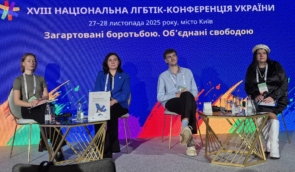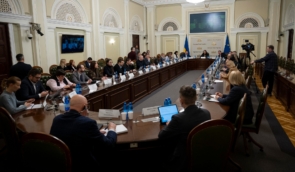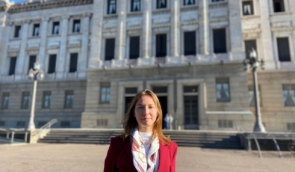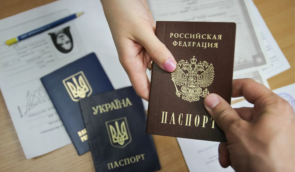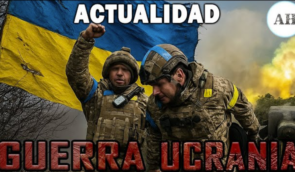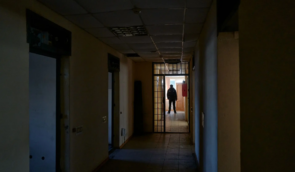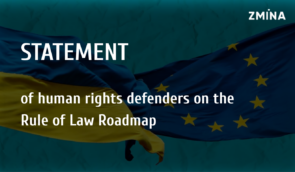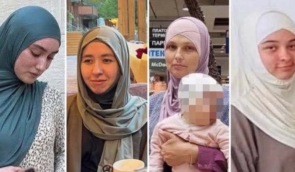At the PORT festival in Odesa, the book “My Deportation” by Crimean Tatar journalist and political prisoner Osman Arifmemetov was presented.
On 31 August 2025, the Human Rights Centre ZMINA presented for the first time in Odesa the book by Crimean Tatar civic journalist and political prisoner, Osman Arifmemetov, “My deportation. Reports of a Crimean journalist written in detention”. The presentation took place at the Book Museum of the Odesa National Library as part of the new PORT literary festival, which was held in Odesa on 30–31 August.
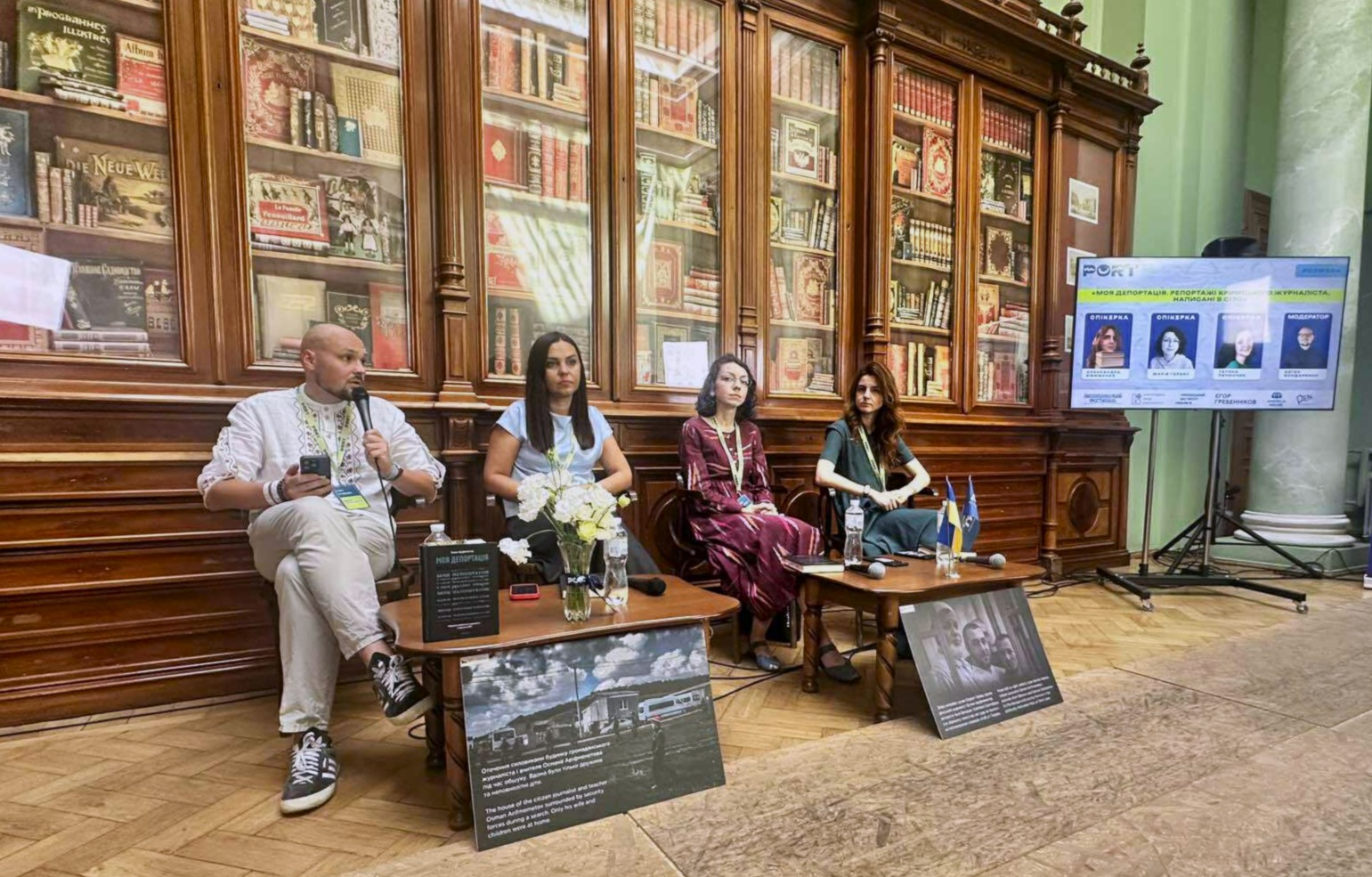 Yevhen Bondarenko, Tetiana Pechonchyk, Mariia Horbach, Oleksandra Yefymenko
Yevhen Bondarenko, Tetiana Pechonchyk, Mariia Horbach, Oleksandra YefymenkoOsman Arifmemetov is a mathematician by education and a member of the Crimean Solidarity movement. After the occupation of Crimea, he documented searches, court hearings and persecution of Crimean Tatars. In 2019, he was illegally arrested, and in 2022, a Russian court sentenced him to 14 years in a maximum-security penal colony on fabricated charges.
His book has become a unique testimony of Russian persecution in Crimea, written in detention. In his texts, Arifmemetov describes the inhumane conditions of detention and absurd cruelty, while preserving irony, inner freedom and faith. The publication contains excerpts in the Crimean Tatar language, and former political prisoner and current Ukrainian Ambassador to Turkey, Nariman Dzhelyal, wrote the foreword.
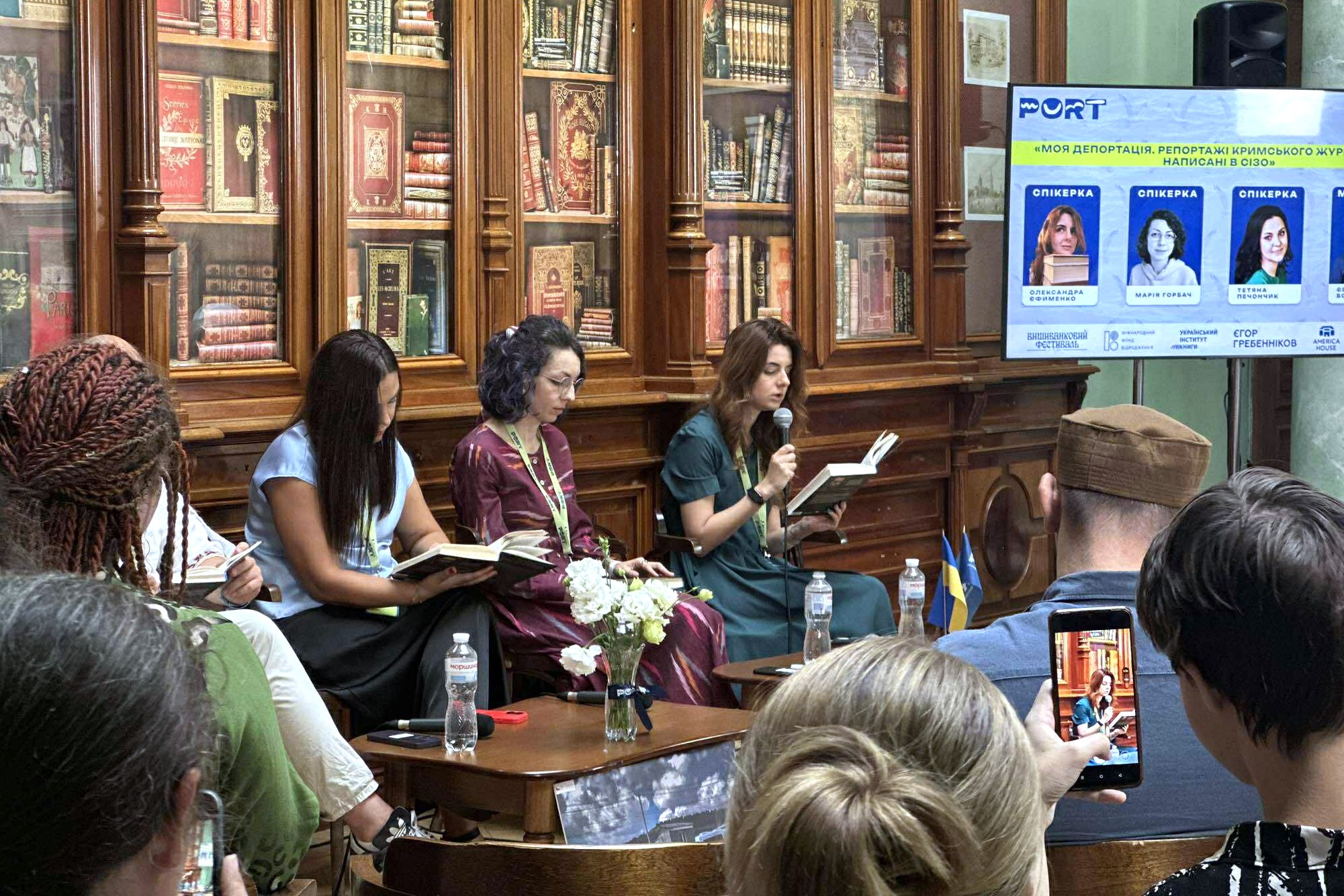
The publication is the result of cooperation between the Human Rights Centre ZMINA and the publishing house Vikhola, with the support of the Ministry of Foreign Affairs of the Czech Republic.
Human rights defender and the Head of the Board of the Human Rights Centre ZMINA, Tetiana Pechonchyk, recalled that the book’s publication is inextricably linked to the history of citizen journalism on the peninsula after the 2014 occupation: “The backstory to this book began in 2014, when Russia occupied Crimea. Even then, we saw beatings, kidnappings of activists and the destruction of independent media. In the information vacuum, the phenomenon of citizen journalism began to emerge. People who had never been journalists, like Osman, began to cover searches and trials. They became the next target of repression. Osman was arrested during the largest wave of detentions in 2019. Today, he reflects on this experience in his book, which is no longer just the testimony of a political prisoner, but a true literary phenomenon“.
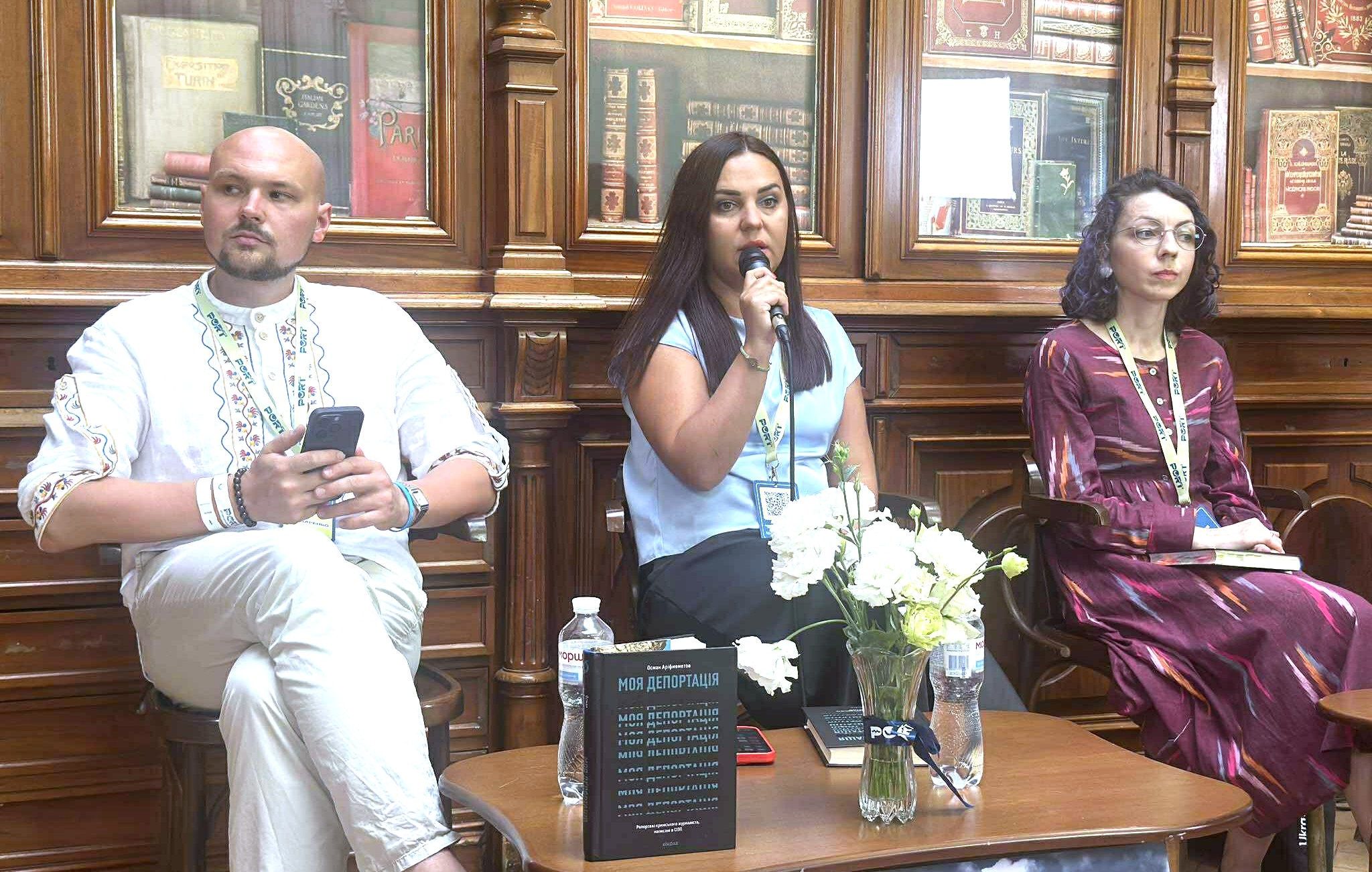 Yevhen Bondarenko, Tetiana Pechonchyk, Mariia Horbach
Yevhen Bondarenko, Tetiana Pechonchyk, Mariia HorbachLiterary editor, journalist and translator Mariia Horbach spoke about working with Arifmemetov’s reports: “I remember that from the very first report, I was struck by the variety of what he described — his daily life, preparations for court, thoughts about his family, ironic remarks about the Russian system. His personality was very clearly traced in this. Later, when the question arose of compiling these texts into a book, it became clear: this is not just documentation, this is living literature that needs to be heard“.
Ukrainian journalist Oleksandra Yefymenko, who personally met Arifmemetov in Crimean courts, emphasised his decision to become a civic journalist: “I understand his choice very well. When your friends and neighbours are being arrested every day, it is difficult to live a normal life. The camera and writing became his natural response to repression. I remember how he broadcast the abduction of an activist live, and this stream helped save a person. This shows that even under pressure, he remained calm, optimistic and acted to convey the truth“.
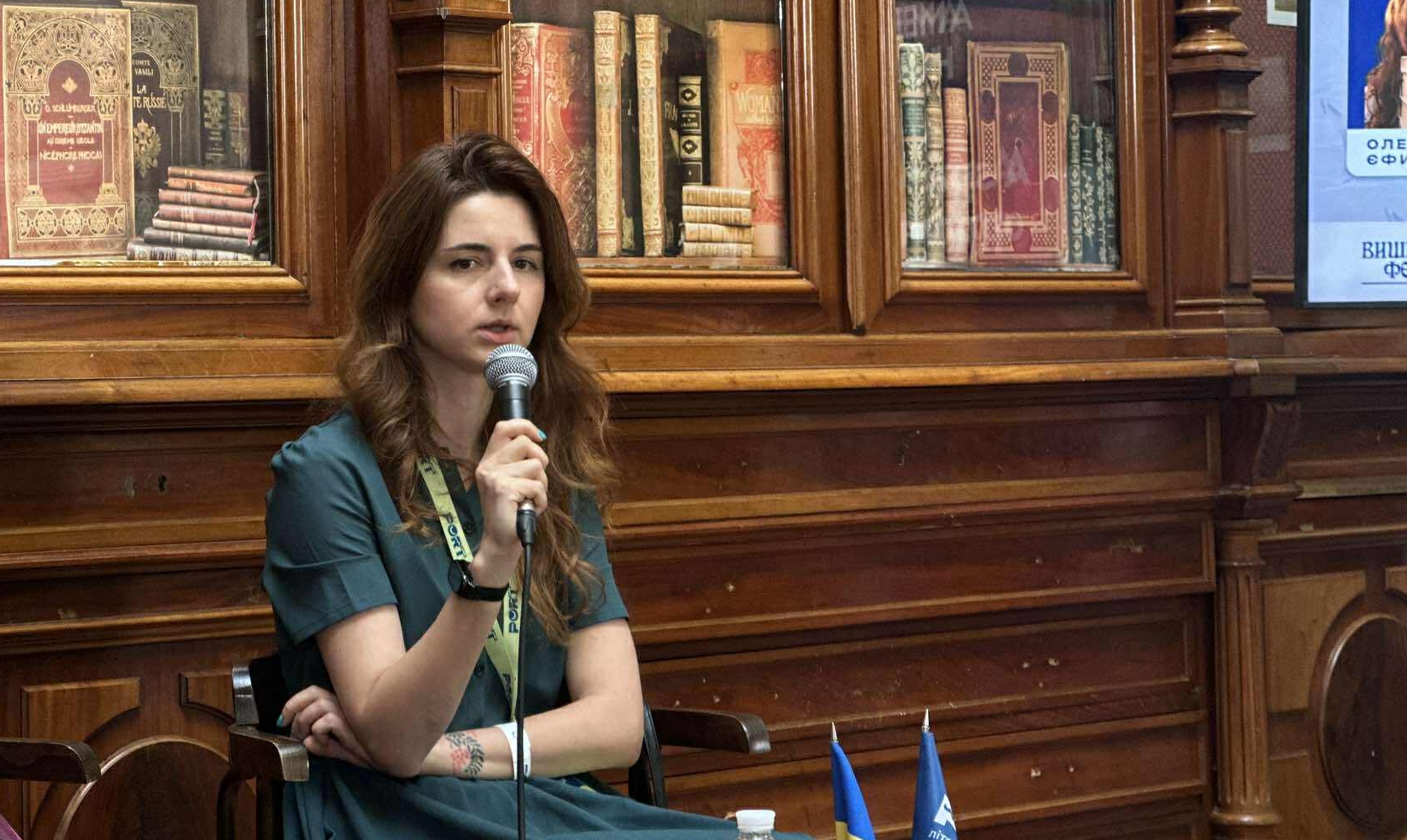 Oleksandra Yefymenko
Oleksandra YefymenkoThe event was moderated by Yevhen Bondarenko, Head of the Information Department of the Mission of the President of Ukraine in the Autonomous Republic of Crimea.
For reference
The PORT Literary Festival was held in Odesa for the first time this year. Its programme concept was “The Coast of Freedom”, and its main goal was to amplify the Ukrainian voice from the south. The programme included poetry readings, poetry slam, discussions, meetings with authors, workshops, and a book fair. The organisers placed a special emphasis on involving young people from the southern regions of Ukraine. The organisers were the Vyshyvanka Fest team and poet and festival programme director Andrii Khaietskyi.
If you have found a spelling error, please, notify us by selecting that text and pressing Ctrl+Enter.

